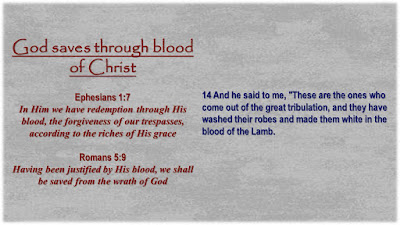written by Rev. Dr. Katherine M. Lehman
When we speak of God's grace, we mean all the good gifts we enjoy freely in life. There are so many. We could spend a lifetime celebrating them: blackberries, buttercups, moonlight, salamanders, etc. A more summary approach is to affirm that life itself is the fundamental gift, with all its delights. For us, the gift of life includes the wondrous gift of being human, finding ourselves plopped down in the midst of the larger gift of creation. That is the bedrock of grace—creation, life, human being. As humans, we are given a unique place in the created order. The creation stories in Genesis are ways of celebrating this original grace. In the stories, God pronounces all creation, including humankind, very good, that is, full of grace.
We also use the word grace to mean the secondary gifts we perceive in the skill and intelligence of creatures. The gospel says the boy Jesus grew in grace and favor, meaning he began to exhibit his unique personality and potential to contribute to his community. We speak of the beauty of a lion or a dancer, saying they exude an animal grace, discerned in the vitality and fluidity of their movement. When we use the word graceful to describe a creature, it's because the creature is being expressive of its God-given self.
There is another way of speaking about grace that is more about redemption than about creation. Whereas God pronounced original grace, the other side of the story is when we head off on our own, ignoring the Giver. This headstrong straying we have called original sin, meaning our freedom to choose the not so good, to turn aside from original grace. Ironically, this freedom is itself the most unique grace given humankind by God, the capacity to choose our own way, which must necessarily entail the possibility of choosing poorly. Because we have not always chosen the most graceful path, we have ended up in some miserable, blind alleys along the way. When we grasp our predicament and call for the help we had previously spurned, amazing grace comes to the rescue.
As in the beloved old hymn, the amazing kind of grace is God's gift of redemption, the grace which prompts us to repent, causing us to think again when we find ourselves in a bad way, and which prompts us to return, putting us back on a more godly path. This turning and returning we call conversion. As another simple hymn says, conversion is turning, turning, til we come round right. When we forget grace and our need of it, amazing grace prompts our memory and then upholds our will, our intention to right our lives, to make amends. The process of continual conversion is the grace most associated with the Holy Spirit. It is also called sanctifying grace. The action of this kind of grace is summarized as repentance, confession, and amendment of life. We rely on grace to make us whole, personally and communally, over time.
Redemptive grace is focused most clearly in the life, death, and resurrection of Jesus of Nazareth, whom Christians call Christ, meaning the one chosen to deliver this particular grace. We might refer to Jesus as Grace himself, as Grace in the flesh, as Grace walking around. The grace of Christ can inspire us in such a transformative way as to change our awareness of ourselves, of our potential as human beings and as humankind, and our awareness of God's gracious purpose for us and through us for all creation. It is this changed awareness which recognizes a still more specialized form of grace—the grace made available to all who choose to serve God's hope for all in Christ. This is the grace which makes us disciples and is available as spiritual power for goodness' sake. Jesus exhibited this kind of power and challenged us to do the same.
The spiritual power demonstrated by Jesus, and the saints who have sought to imitate his cooperation with God, is the energy which continues to heal the world, to bring it into more and more wholeness. This specialized grace is available to any who want to offer themselves in gratitude, to enlist in God's vision for humankind and to discover our proper place in creation as we serve. This is the grace that makes us into earth stewards for Christ's sake. This grace is the assistance given us when we choose to become the people that God means us to be, giving ourselves over to whatever goodness we are meant to create, to redeem, to sustain. This kind of grace comes with the breathtaking awareness that we are participating in the very life of God, and it's awesome good!






































No comments:
Post a Comment